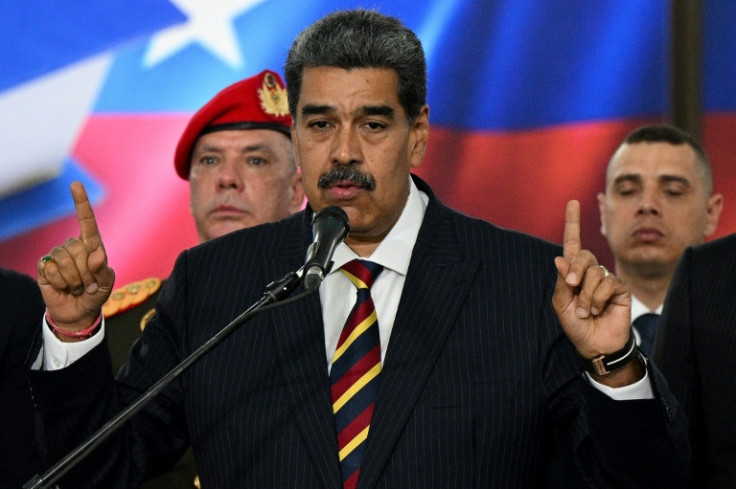Venezuela Court Says Its Ruling On Disputed Vote Will Be 'Final'

The ruling that Venezuela's Supreme Court will deliver on the disputed presidential election will be "final," the body's president said Saturday during a hearing on the July 28 vote.
The court "is continuing the assessment begun on August 5, 2024, with a view to producing the final ruling... Its decisions are final and binding," Carylsia Rodriguez said.
Most observers say the high court is loyal to the government of Nicolas Maduro, who has claimed a narrow victory in the election.
Opposition leaders insist that their candidate, Edmundo Gonzalez Urrutia, won overwhelmingly, and they have produced what they say are official tallies from voting sites as evidence.
Maduro himself summoned the high court on August 1 to "validate" a victory questioned both at home and abroad.
The court heard from all candidates, including Maduro, this week -- except for Gonzalez Urrutia, who has said he fears arrest.
He has made no public appearances in more than a week, while key opposition leader Maria Corina Machado -- a past presidential candidate who was banned from running this time -- has said she is living in hiding.
Gonzalez Urrutia called Saturday for Maduro to end "violence and persecution," referring to post-election protests that rights groups say left 24 people dead.
Maduro has said 2,200 people have been arrested, along with two members of security forces killed.
"I ask you on behalf of all Venezuelans to put an end to the violence and persecution and to immediately release all compatriots arbitrarily detained," Gonzalez Urrutia said in a video posted on social media.
"Enough of persecution and violence, enough of trying to sow terror, enough of not respecting the will of Venezuelans for change," Gonzalez Urrutia said. "Let's all start to get our country out of this crisis."
"Demanding respect for our constitution is not a crime, demonstrating peacefully to uphold the will of millions of Venezuelans is not a crime," the 74-year-old former diplomat added.
The National Electoral Council (CNE) ratified Maduro's victory on August 2, saying he had won 52 percent of the vote, but it refused to release exact tallies from election sites, saying the data had been hacked.
The opposition, in contrast, published printed tallies -- the legitimacy of which has been denied by Maduro -- that they say show Gonzalez Urrutia receiving 67 percent of the vote.
The opposition and many observers say the alleged hacking of the results is a government invention to keep from having to publish election documents.
Maduro on Friday rejected those accusations, saying there had been "brutal" hacking, with "30 million attacks per minute on the electronic systems of the CNE and of Venezuela."
Opposition lawyer Perkins Rocha said that by turning to the high court Maduro was effectively acknowledging that "no one believes" the CNE, adding that "Maduro knows he can count on a (court) that kneels before him."
During his time in office, Maduro has overseen a national collapse, including an 80 percent drop in the once-wealthy oil-rich country's GDP, amid domestic economic mismanagement and international sanctions.
According to the United Nations, more than seven million Venezuelans have fled the country of 30 million since Maduro took over in 2013, mostly to other Latin American countries and the United States.
© Copyright AFP 2024. All rights reserved.





















